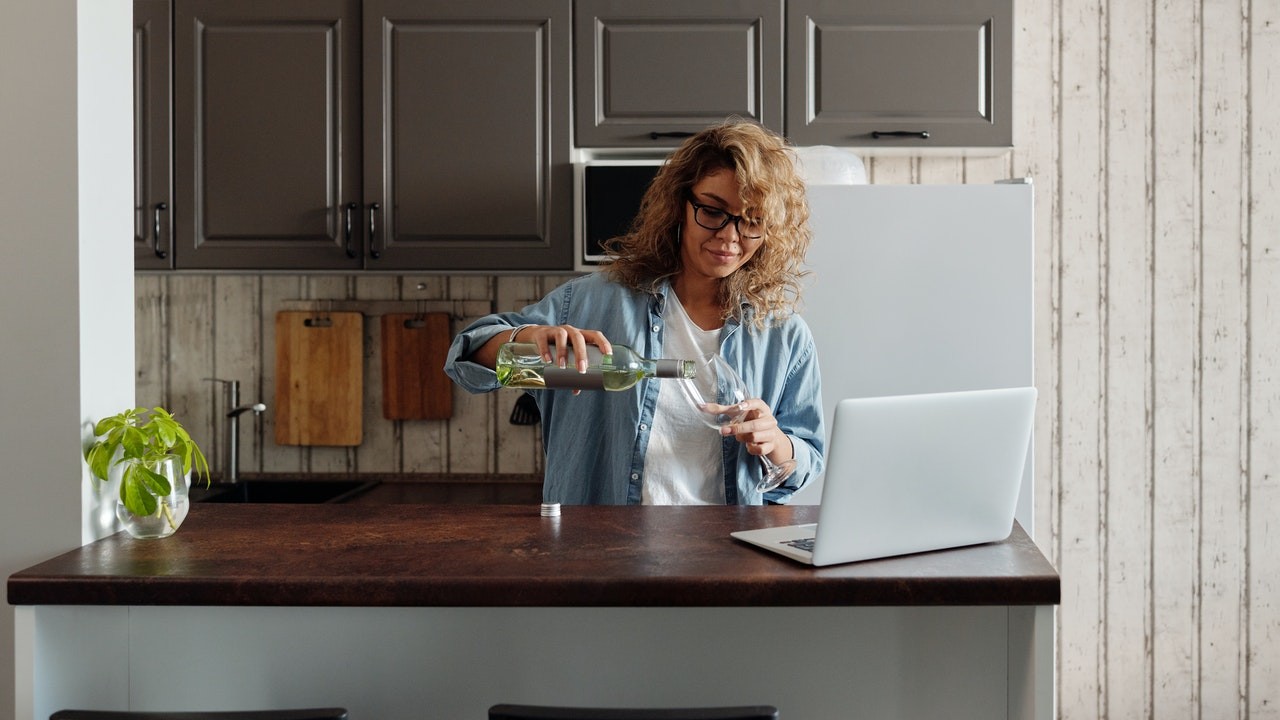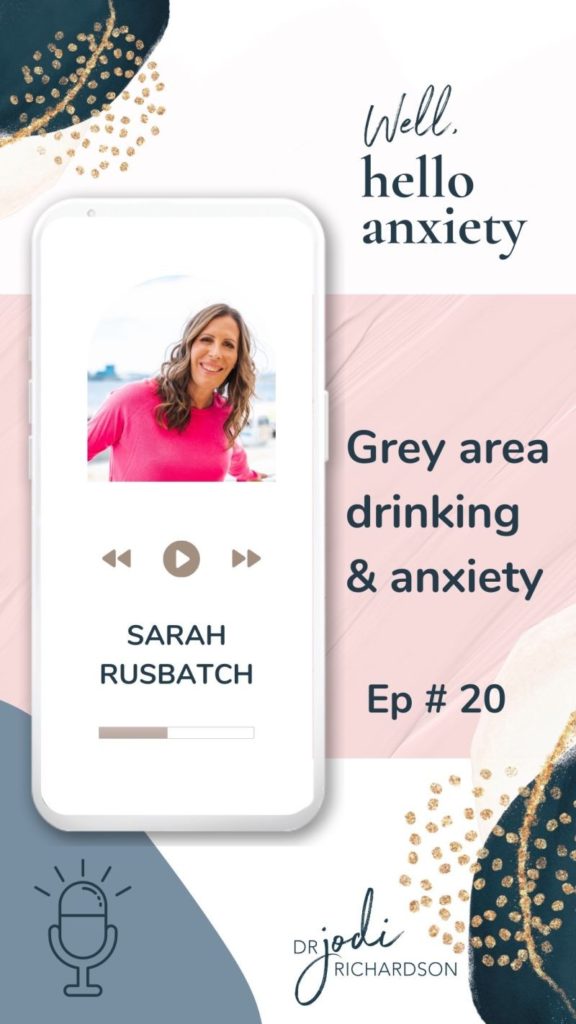
I have no doubts about the benefits of hiring personal coaches for various aspects of our lives.
Business coach? Absolutely!
Relationship coach? For sure!
Drinking coach? Ahhh … come again … Have you ever heard of a drinking coach before? How about a grey area drinking coach?
I hadn’t. That is, not until I met Sarah Rusbatch, who provided some insights into alcohol that I hadn’t previously considered.
For instance, Sarah told me that, until recently, the conversation around alcohol hasn’t been particularly nuanced. It’s been like this: either you’re an alcoholic, or you’re a social drinker.
But what about those of us who are somewhere in the middle of that? That’s when Sarah introduced me to the idea that everyone of us can be thought of as being located somewhere on what I now call an “alcohol drinker spectrum.”
On the left of the scale are the 1s and 2s—people who rarely drink, or rarely think about drinking.
And on the right of the scale are the 9s and 10s—people who physically depend on alcohol, or who can’t get through a day without drinking.
As a drinker, are you at either of the two extremes on the following scale?

If you’re like me, there have been times in your life when you’re somewhere in the middle.
Indeed, in the early stages of the Coronavirus pandemic, living through lockdown after lockdown in Melbourne, I found myself having a drink pretty much every evening. And I justified it, of course. Oh, the stress! I’ll just have a G & T or two to calm my anxiety.
Are You A “Grey Area Drinker”?
Sarah calls people like me (and maybe you, too) “grey area drinkers.” Visually, we can be thought of as being in the middle of the spectrum, tipping toward the unhealthy side, somewhere between 5 and 8, as follows.

Grey area drinkers don’t appear to others as if they’ve got a drinking problem. But, deep down, they aren’t comfortable with how they’re using alcohol.
That was exactly my experience. When the COVID-19 lockdowns ended, I realised that my new habit didn’t align with my values. Plus, I wasn’t being totally honest with myself—my G & T consumption wasn’t alleviating my anxiety.
This really hit home for me when Sarah was a guest on my podcast. “When it comes to talking about anxiety,” she told me, “alcohol is often the missing piece. So, many of us think it’s the solution to anxiety, whereas for me and many others, it’s actually causing, or amplifying, it.”
Later in our conversation, when talking about the time in her life before she unwittingly became a heavy drinker, Sarah said, “I never had anxiety in my life.” But the more she drank … “I was becoming this shell of a person who was seeking out wine because I thought it was the solution. But the wine was having an impact. It was affecting my sleep [and] my mental health.”
For Sarah (and possibly you, too), the connection between anxiety and alcohol is now clear.
I wanted to learn more about this link. So I Googled around, and clicked upon the concept of “hangxiety.” In an article about this buzzword, Dr Elizabeth Bulat answered two important questions, which I’m going to quote here in full because it’s so helpful.
What is hangxiety?
Drinking alcohol dumps a flood of dopamine into the pleasure center of the brain. The feel-good chemical swirls through your head, but the rush only lasts for a short while. When dopamine levels dip back down, feelings of anxiety rebound.
Who is most likely to develop hangxiety?
People who suffer from depression and anxiety are more likely to experience anxious feelings after drinking. Though alcohol can suppress anxious feelings while a person is imbibing, the rebound effect can be far worse than their baseline level of anxiety. Unfortunately, those uncomfortable emotions can drive people straight back to the culprit: alcohol.
Coming Out of the Vortex that is Anxiety + Alcohol
So what can we do about hangxiety? Part of the problem for some people who are grey area drinkers is this—it’s just not easy to simply drink responsibly. They can’t just effortlessly limit their alcohol consumption.
I don’t have a surefire solution to this problem that’ll work for everyone. Neither does Sarah. But we can’t give up. We have to keep trying.
With that in mind, I encourage you to listen to my full conversation with Sarah. You can listen to it on Apple Podcasts, Google Podcasts, or Spotify.
I also invite you to check out Sarah’s website, SarahRusbatch.com. Previously when I mentioned that there isn’t a surefire solution for everyone, that was technically correct. Yet there are programs that have helped grey area drinkers transform their relationship with alcohol, such as Sarah’s “30-Day Alcohol Free Challenge.” And they might work for you!
P.S. Let’s keep the conversation going—join me over on Instagram.
P.P.S. Photo credit for the banner photo: Pexels.


about
Jodi is on a mission to elevate mental health and wellbeing in families, classrooms and workplaces.


free 5-day
Calm your anxious brain
mini course

Recent Posts

free 5-day
Calm your anxious brain
mini course
Sign up for my free 5-day ‘Calm Your Anxious Brain’ email mini-course. Put the strategies into place for yourself, light the way for your kids, or do both.







